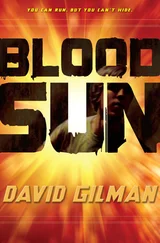Sigrid drops her suitcase.
The young woman’s face is chalky and coated with sweat as they help her down the stairs. “I’m sorry,” Sigrid whispers. “Your sister asked me to keep an eye on you while she was away. I’m afraid I haven’t done a very good job.”
But Brigitte appears beyond caring about apologies. She bites her lip to suppress a cry as they guide her down the next step. “He’s kicking up quite a ruckus tonight,” she says, rubbing her belly. “Isn’t he? So impatient. Just like his father.”
• • •
CRYING FORBIDDEN, the sign still reads, but the Tommies are close tonight. Too close for speculation, too close for jokes. There’s only room for fear between the bomb blasts.
In the cellar, the kaffeeklatsch has taken charge of Brigitte, assembling benches into a makeshift bed and covering her in blankets. Sigrid looks at her wristwatch in the swinging lamplight. “Christ!” an old uncle from the first floor is calling plaintively at the tremors from the bombs blasts . “Jesus Christ!”
Then Mother Schröder seizes her roughly by the arm. “Her water’s broken. She’s going into labor!” she shouts into Sigrid’s face.
• • •
THE FRAUEN IN THE BUILDING have abandoned their mending, and separated the girl completely from the men. The members of the kaffeeklatsch prop her up. Frau This and Frau That. In the blinking light, the girl’s face gleams with sweat, even as her breath frosts. Frau Trotzmüller whispers nonsensical encouragements as she mops at the sweat with a handkerchief. Brigitte’s legs are splayed wide open, her dress shoved up past her waist. Sigrid is one of the women holding up a curtain of blankets to guard the Frau Obersturmführer’s modesty. The men peer blankly at the action. Outsiders looking in. But when she turns her head, she can see the crown of the baby’s head emerging from the birth canal. “Push!” Mother Schröder commands the girl as she prepares to receive the infant in the folds of her apron. “Now is the time , girl! Push! Push! ”
“It’s coming out!” Frau Trotzmüller shouts with a gleeful panic. “The head is out, little mother!”
“Almost there!” Mother Schröder shouts over the girl’s agonized screams. “Keep pushing! That’s it! Keep pushing !”
“It’s coming out! It’s coming out!”
And it is. A tiny pinkish thing covered in maternal goo. Sigrid stares.
“It’s out!” Frau Trotzmüller crows with ecstatic relief. “Thank God, it’s out !”
Lifting it by the legs, Sigrid’s mother-in-law administers the slap that draws air into the baby’s body. Its first exhale emerges in a sharp, high-pitched whine that is so full of life it stings Sigrid’s eyes with tears. And for a single moment in that dingy cellar, there is crying, but there is also cheering.
“Daughter-in-law, get me a shears, I need to cut the cord,” Mother Schröder instructs with some spark of satisfaction.
“My sewing basket is against the bench there,” Marta Trotzmüller declares with excitement. “Use mine . You’ll see it!”
She bolts over to sewing basket and returns with the shears. The sound of a snip is heard over the mighty squalling coming from the tiny mouth. “It’s a girl ,” Mother Schröder announces to all as she swaddles the child in her apron. But something is amiss. The Frau Obersturmführer’s face is still an agonized twist. “No. No , you are wrong !”
“Child?”
“No, you are wrong . It must be a boy . A boy. It must be!”
“Blood!” Frau Trotzmüller suddenly squawks. “Blood!”
“Good God, she’s hemorrhaging. Sigrid, take the baby,” her mother-in-law commands, and before she can refuse, Sigrid has the child in her hands, wrapped in a kitchen apron. This tiny little thing that’s nothing more than a loud noise, but that fills her arms with the weight of promise. The weight of existence.
• • •
WHEN THE RESCUE WORKERS and the fire police are hauling the bodies from the cellar the next morning, they will find the child’s mother intact. Undamaged by the collapsing beams that crushed the Portierfrau Mundt into something quite unrecognizable. They will find her unbroken by the small mountain of masonry that buried the remains of others. Frau This and Frau That. They will remove the Frau Obersturmführer’s lifeless body from the wreckage of the cellar as if it’s a holy relic. “Her eyes were gazing toward Providence,” one of the local papers will write. “A bloodless Madonna.” It will be the SS who take charge of her corpse, and they will bury it with standards unfurled, and torches crackling. This little Mischling Sleeping Beauty casketed like a Martyr of the Movement. Her husband, the Obersturmführer, just returned from the front minus an arm below the left elbow, will raise his remaining limb in stiff salute above the open coffin as a chorus of BdM Jungmädel sing, “High Night of Clear Stars.” Beside her bier, the tiny white coffin is closed. Closed, though all it contains is the bloodstained kitchen apron which swaddled her daughter at birth. It’s all the rescuers could find of the child.
Two things will be determined from the crater in the street. One, that the bomb was probably a standard British GP, a “general purpose,” set for impact demolition. It will also be determined that the blast was not the result of a direct hit. It was clearly this last fact that allowed for survivors, when the façade of the building was sheared away and collapsed into the cellar. Of the fifteen people jammed into that small, dank underground space, fully half of them managed to escape through the special brickwork passages that lead into the cellar next door. When interviewed days later by a police captain, Herr Mundt, the local Party warden, denied vehemently any possibility that he could have allowed the newborn of a serving SS officer to be stolen. That, regardless of what some of those loopy women in the cellar might have to say, they were simply balmy, and that there was no chance—absolutely no chance—that such a tiny little baby, no bigger than a thumbnail, could possibly have survived.
• • •
ABOVE THEIR HEADS is a thunder, like a thousand trains, like a thousand pianos dumped from a great height, like a mountain collapsing in on itself. A scream and flash of light, and then nothing but the roar of darkness. For minutes, maybe hours, maybe seconds, Sigrid is unsure if she is alive or dead. Her body is embraced by a thick black numbness. But slowly, slowly, she is aware that her heart is beating. Slowly, she is aware that she is breathing. And then she hears the impatient cry of the baby shielded in her arms. Shielded by her body. Light comes a few breaths later. The beams of electric torches. Shouting. Moaning. Somebody sobbing and somebody giving orders.
“Frau Schröder. You must come!”
It’s a voice she recognizes. A woman’s voice. Beams of light are bouncing off broken beams, shimmering through the dust. She is coughing on the heavy air.
“Frau Schröder . You must leave her.” A voice coming closer. “She is dead , Frau Schröder, you must leave her.”
But no , she wants to say. No, You’re wrong . And maybe she does say that, as she holds the baby tightly. She’s alive . Can’t you hear her? She’s crying? Can’t you hear? Then a shaft of light catches a face in the rubble. Mother Schröder glowers back at her in blunt astonishment. Unblinking. Her expression frozen, like the face of a watch that has stopped, its last second suspended in time. A dark trickle of blood extends the corner of her final frown.
Читать дальше












